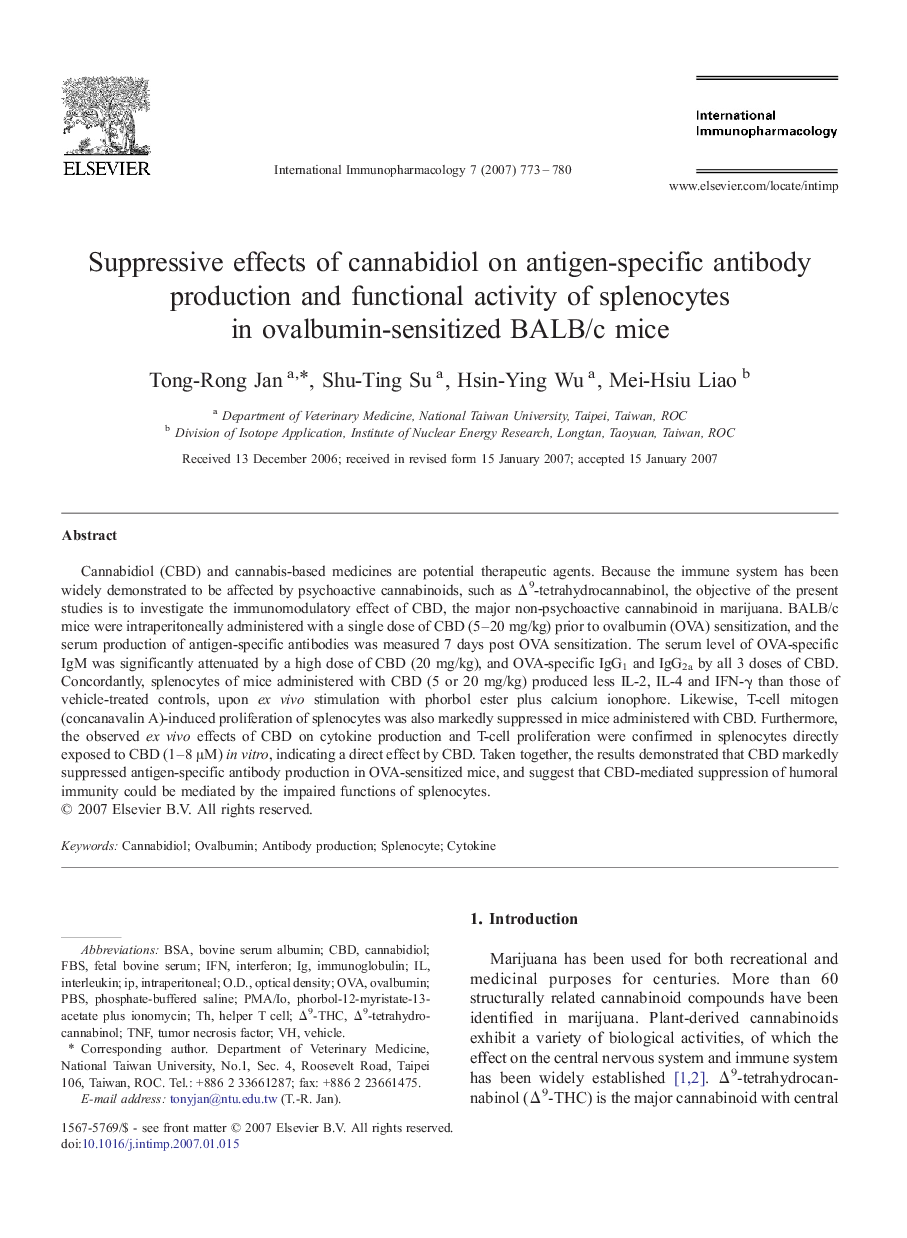| Article ID | Journal | Published Year | Pages | File Type |
|---|---|---|---|---|
| 2542497 | International Immunopharmacology | 2007 | 8 Pages |
Cannabidiol (CBD) and cannabis-based medicines are potential therapeutic agents. Because the immune system has been widely demonstrated to be affected by psychoactive cannabinoids, such as Δ9-tetrahydrocannabinol, the objective of the present studies is to investigate the immunomodulatory effect of CBD, the major non-psychoactive cannabinoid in marijuana. BALB/c mice were intraperitoneally administered with a single dose of CBD (5–20 mg/kg) prior to ovalbumin (OVA) sensitization, and the serum production of antigen-specific antibodies was measured 7 days post OVA sensitization. The serum level of OVA-specific IgM was significantly attenuated by a high dose of CBD (20 mg/kg), and OVA-specific IgG1 and IgG2a by all 3 doses of CBD. Concordantly, splenocytes of mice administered with CBD (5 or 20 mg/kg) produced less IL-2, IL-4 and IFN-γ than those of vehicle-treated controls, upon ex vivo stimulation with phorbol ester plus calcium ionophore. Likewise, T-cell mitogen (concanavalin A)-induced proliferation of splenocytes was also markedly suppressed in mice administered with CBD. Furthermore, the observed ex vivo effects of CBD on cytokine production and T-cell proliferation were confirmed in splenocytes directly exposed to CBD (1–8 μM) in vitro, indicating a direct effect by CBD. Taken together, the results demonstrated that CBD markedly suppressed antigen-specific antibody production in OVA-sensitized mice, and suggest that CBD-mediated suppression of humoral immunity could be mediated by the impaired functions of splenocytes.
